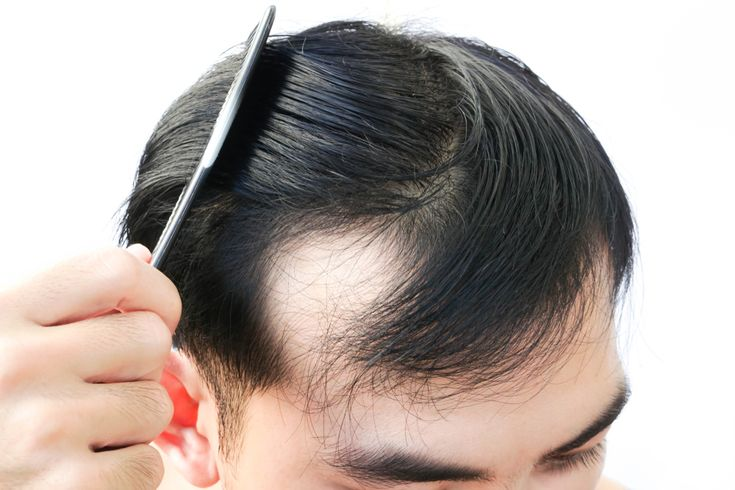Hair Transplant Cost in Dubai is a common problem that affects millions of people worldwide. Whether it's due to genetics, age, or other factors, hair loss can significantly impact an individual’s confidence and self-esteem. Fortunately, modern medical advancements have made hair transplants a popular and effective solution. However, selecting the right surgeon for the procedure is crucial for achieving optimal results. This article will guide you through the process of choosing the right hair transplant surgeon, ensuring you make an informed decision for your hair restoration journey.
Understanding Hair Transplant Surgery
Hair transplant surgery involves transferring hair follicles from one part of the body, typically the back or sides of the scalp (called the donor site), to the thinning or balding areas (called the recipient site). There are two primary methods used in hair transplant surgeries:
FUE (Follicular Unit Extraction): This method involves extracting individual hair follicles from the donor area and implanting them into the recipient area. FUE is minimally invasive and leaves tiny, almost invisible scars.
FUT (Follicular Unit Transplantation): In this method, a strip of skin containing hair follicles is removed from the donor area, and the follicles are then implanted in the recipient site. This procedure typically leaves a linear scar but can cover larger areas in one session.
Each method has its advantages, and the choice between them depends on factors like the extent of hair loss, patient preferences, and the surgeon’s recommendation. Regardless of the technique, the surgeon’s skill and expertise will greatly influence the outcome.

Why Choosing the Right Surgeon is Critical
Choosing a skilled and experienced surgeon is paramount in ensuring a successful hair transplant. The success of the procedure depends on factors such as precise placement of hair follicles, correct angle and depth of implantation, and the ability to achieve a natural-looking hairline. Poor technique can result in scarring, unnatural hair growth patterns, or even the failure of transplanted hair to grow. Therefore, selecting a qualified surgeon ensures not only effective results but also reduces the risk of complications.
Key Factors to Consider When Choosing a Hair Transplant Surgeon
1. Credentials and Qualifications
The first step in choosing the right surgeon is verifying their credentials. Ensure that the surgeon is board-certified in hair restoration or cosmetic surgery. Certifications from reputable organizations such as the International Society of Hair Restoration Surgery (ISHRS) or the American Board of Hair Restoration Surgery (ABHRS) indicate that the surgeon has undergone specialized training in hair transplant procedures.
Additionally, the surgeon should have a medical degree and experience in dermatology or plastic surgery. This ensures they have a deep understanding of hair anatomy and can provide personalized treatment based on your specific condition.
2. Experience and Specialization
Experience plays a significant role in the success of hair transplant surgeries. Surgeons who specialize in hair restoration and have years of experience performing various types of transplants are better equipped to handle complex cases. Ask the surgeon how many hair transplants they have performed and whether they specialize in FUE, FUT, or both techniques.
Additionally, inquire about their experience with patients who have similar hair loss patterns or conditions as yours. This can give you confidence that the surgeon is capable of delivering the desired results.
3. Before and After Photos
One of the best ways to assess a surgeon’s skills is by reviewing their portfolio of before and after photos from previous patients. Look for results that appear natural, with a well-blended hairline and consistent hair growth. The photos should also reflect the surgeon’s ability to address different hair types and stages of hair loss.
While reviewing the photos, ask for cases similar to your own. For example, if you have advanced hair loss, request to see examples of patients with similar conditions and how their results turned out.
4. Patient Reviews and Testimonials
Patient reviews provide valuable insights into a surgeon’s reputation and the quality of their services. Look for testimonials from individuals who have undergone hair transplant surgery with the surgeon. These reviews can offer information on the surgeon’s bedside manner, the comfort level during the procedure, and the long-term results.
Independent review platforms, forums, and social media can also provide honest opinions from past patients. However, ensure that the reviews are from reputable sources and not overly promotional.
5. Consultation Process
A thorough consultation is essential before undergoing any hair transplant procedure. During the consultation, the surgeon should assess your hair loss, discuss your goals, and recommend the most suitable treatment plan for your condition. A good surgeon will take the time to explain the different techniques (FUE, FUT), the potential risks, and the expected results.
Pay attention to how the surgeon addresses your concerns. Are they attentive and willing to answer all your questions? Do they provide clear and honest information about the procedure, including recovery time and possible complications? A trustworthy surgeon will ensure that you feel comfortable and informed throughout the process.
6. Technology and Facilities
The quality of the clinic’s facilities and the technology used for hair transplant surgery can also impact the outcome. Ensure that the clinic is equipped with the latest tools and technologies for performing hair transplants. Advanced equipment such as robotic hair transplant systems can enhance precision and minimize scarring.
Furthermore, the clinic should maintain high standards of hygiene and safety. The surgeon and their staff should follow strict protocols to prevent infections and ensure patient safety during the procedure.
7. Follow-Up Care
Hair transplant surgery requires proper aftercare to ensure successful healing and hair growth. A reputable surgeon will offer post-surgery care instructions and schedule follow-up appointments to monitor your progress. Ask about the clinic’s aftercare support and whether they provide guidance on hair maintenance, medications, and long-term care.
8. Trust Your Instincts
Finally, trust your instincts when choosing a hair transplant surgeon. If you feel comfortable with the surgeon’s approach, communication style, and professionalism, it’s likely a good fit. On the other hand, if something feels off or the consultation seems rushed, it may be worth exploring other options.
Conclusion
Choosing the right hair transplant surgeon is one of the most important decisions you’ll make in your hair restoration journey. By considering factors such as credentials, experience, patient reviews, and consultation quality, you can ensure that your procedure is performed by a skilled professional who can deliver natural and lasting results.
4o
